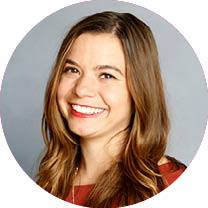Cheryl Williams has filed to run for the Collin County commissioner, Precinct 2 seat. She is running as a Republican incumbent against Joey Herald in the March 6 primary election.
Community Impact Newspaper sent Williams a list of questions about her candidacy. Below are her answers, which have been edited for publication style.
Q: What is your occupation?
A: I am currently Collin County commissioner, Precinct 2 and have been since Jan. 1, 2011.
Q: Why did you decide to run for this office?
A: I believe I have been an effective representative for the people of Precinct 2. I really enjoy my work and all the relationships I’ve built, and there are a number of issues that I have been working on that are important to me and to my constituents. We are in the middle of a Strategic Transportation Plan that directly impacts my precinct. I have been the point person on the court on mental health issues. This is a complex and very costly problem, in both monetary and human terms, which adversely impacts law enforcement agencies, the jail and our local hospitals. I also believe that public safety is, by far, the core function of county government. I have supported the efforts of Sheriff [Jim] Skinner to reorganize his department and use data to drive his management decisions. There are still challenges we face due to growth and new legislation that impact all areas of public safety, especially the jail. I have an excellent working relationship with the sheriff and believe I can help find the right solutions to the challenges we are facing now and in the future.
Q: What experience—professionally or politically—do you have that would prepare you for this position?
A: I have actually been doing the job for the last seven years. I have also represented the court on the North Texas Behavioral Health Authority, as the alternate to the Regional Transportation Council, and on the Jail Population Committee. I was elected to three terms on the Plano City Council, served as mayor pro tem, and represented the [City] Council on numerous committees. I have an extensive background in both financial consulting and land-use consulting.
Q: If elected, what would be your top priorities?
A: The single most important issue facing the county over the next several years is dealing with explosive growth. It’s this growth that really drives all of our pressing issues. How do we cope with congestion and improve mobility? I have actively been working on this issue from the moment I took office, and I am committed to seeing our strategic planning effort through and working diligently to find funding for the construction of the projects that end up in the plan. How to deal with an increasing jail population? We may ultimately add on to our jail, but that will be very expensive to build and operate. There are things we can do now that will help manage the jail population and get more use out of current facilities. How do we handle the rapid increase of citizens with mental illness and substance abuse problems both in and out of the jail? This is a seemingly intractable problem that is only getting worse. Providing better treatment, reducing the pressure on law enforcement, and closing the revolving door at our jail and hospital emergency rooms will take creativity, strong leadership, political courage and partnerships with cities, hospitals and the state Legislature to find an innovative way to improve our responses to this problem.
Q: What else do you want constituents to know about you and your background?
A: I’m proud of my record as a principled conservative and that Collin County now has the lowest tax rate in the entire state of Texas. I am looking forward to continuing these policies and working on the challenges ahead. We are on the verge of making some important decisions about transportation and mobility, and we have decisions to make about how we continue to improve public safety. I want to be a part of finding solutions for the mental health and substance abuse issues that are now so critical. I believe we can find an innovative way to address this problem that could be a model for the rest of the state.






